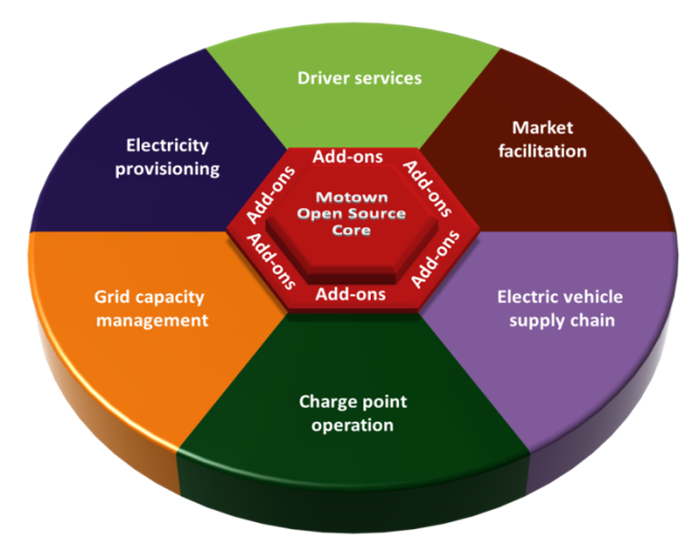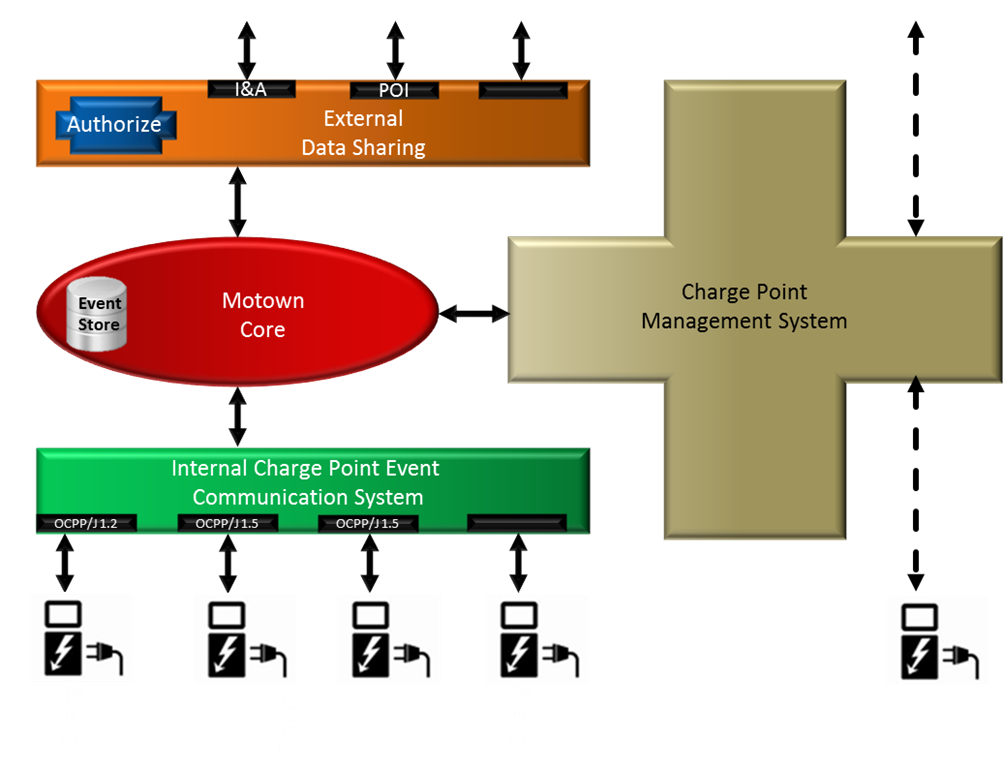We have tried to find the best possible answer to the current arising opportunity in the EV-market; an IT communication platform. We created a basic IT platform (Motown Core) for standard communications between data sources and data consumers. The basic IT platform offers a continuous, robust and stable backbone. It has been developed based on the lessons learned of three existing back office systems operating in the EV-market.
‘De-facto’ protocols can be achieved by a widespread usage of the platform and/or working solutions. Protocols of interfaces and connections should increase business opportunities for offering (paid) applications and services. Each party can focus on developing value added services instead of investing in the (soon to be) commodity IT product; a communication platform. We are eager to build a community where expertise can be shared for further stimulation of the market, helping each other by debugging, improving and submitting software solutions. An active community will improve the quality and robustness of the platform. An active community will make the software develop at a velocity rate that is impossible to keep up with for a single company.
Common place software solution
Participants of the EV-market can be subdivided into a wide variety of functional areas. Each participant is operating in the market to add its own value. The different functional areas benefit more and more from exchangeable communication between areas. Communication will become a key factor in a the level of success of the rapidly growing market. The Motown Core has been developed to be the spindle in the communication web of charge point operators (CPO). All functional areas can communicate with the parts of a local CPO system where access is granted by the use of add-ons. When an add-on is developed compatible with the Motown Core it can be implemented on any local Motown Core without the need for a custom fit implementation.


Full control of own business data
When you download the Motown software, a local copy is installed. From that moment on you, and only you are in control of your own system and business data that is communicated and stored within the system. External parties can be granted access to (parts of) the data. Because you are in control of your own local system, access needs to be permitted by the owner of the system.
